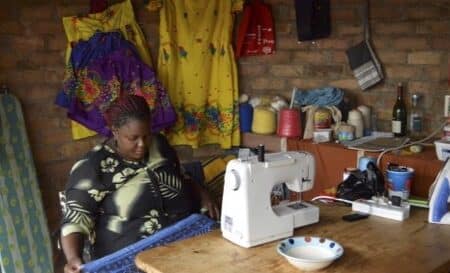President Cyril Ramaphosa has been challenged to include an expert capable of analysing the damage BEE is doing to poor South Africans when he appoints the new B-BBEE advisory council.
The Institute of Race Relations (IRR) says in a statement that ‘the pro-poor, pro-merit case for finally liberating South Africa from race law would be welcomed by anyone seriously recognising the harm BEE is doing to South Africans generally, making most black people poorer, and that doubling down on BEE will only make matters worse for the worst off’.
Said IRR Head of Campaigns Gabriel Crouse: ‘If the B-BBEE advisory council wants to seriously tackle the question of whether BEE is harming most poor black people it should include someone from the IRR to lay down the uncomfortable facts and present a workable plan to grow opportunities for those in need. My hand is up, I want to help.’
Crouse added: ‘It is so obvious that BEE fails most black people, and poor black people especially, that nobody pretends the policy works overall. Instead, the President’s panel is likely to include several critics of BEE of the past who spin in furious circles only to propose that the solution is more BEE. The best would be no BEE. Let someone tell it straight from inside the new advisory council.’
Yesterday, Crouse led an IRR team to the Union Buildings to deliver a petition endorsed by more than 23 000 South Africans who have registered their opposition to the race-based Employment Equity Amendment Bill (EEB), and calling on President Ramaphosa to ‘do the right thing and refer the EEB back to the National Assembly for reconsideration’.
The IRR argues that the new law ‘imposes public sector-style quotas on the private sector, racially disqualifies some businesses from bidding to tender with the state, and forces employers to second-guess their employees’ race under threat of fines that would bankrupt almost all businesses’.
The IRR points out that in surveys it has commissioned over the last decade ‘have shown consistently that unemployment is the top-ranked problem in South Africa and that most black people are eager to give up BEE in place of workable policies’.
The reality for most South Africans is desperate.
According to Stats SA, in the first quarter of 2022 most working-age black South Africans could not find a job or had given up looking for work. This is a shocking contrast to the period between 2003 and 2008, before significant aspects of BEE were implemented, when employment figures among all groups, including black people, improved. Unemployment fell by 12% in that time.
Subsequently the official unemployment rate for black South Africans increased, rising from 27% in 2008 to 39% in 2022. This period was BEE’s heyday.
‘The choice between prioritising BEE and workability is addressed by the Zondo Commission’s report into state capture too. That report underlines an “inevitable tension” between maximising value-for-money and race-based social engineering in the analysis titled, “Problems in the legislative design”, finding that “in the view of the Commission the primary national interest is best served when the government derives the maximum value-for-money in the procurement process and procurement officials should be so advised.”’
The IRR believes the President’s advisory council ‘must receive this advice too’.
The Institute argues that BEE ‘must be replaced by a policy that is more likely to succeed, such as the non-racial Economic Empowerment for the Disadvantaged (EED) proposal crafted some years ago by IRR Head of Policy Research, Dr Anthea Jeffery, which would incentivise growth rather than rent-seeking’.
The IRR petition to the President – endorsed by 23 098 unique submissions – lays down detailed legal arguments to show that the EEB is inconsistent with Sections 1 (Founding Values), 9 (Equality), 195 (Administration), and 217 (Procurement) of the Constitution.
[Photo: Gushwell F. Brooks/Jesuit Refugee Service]

